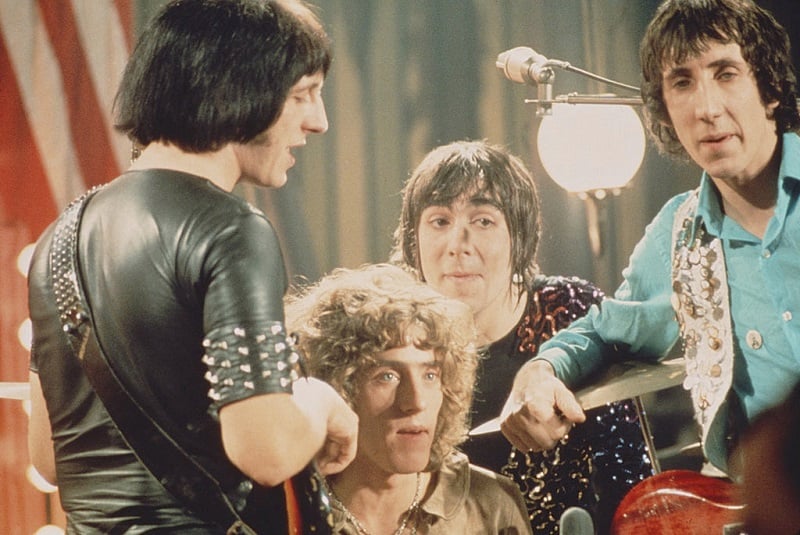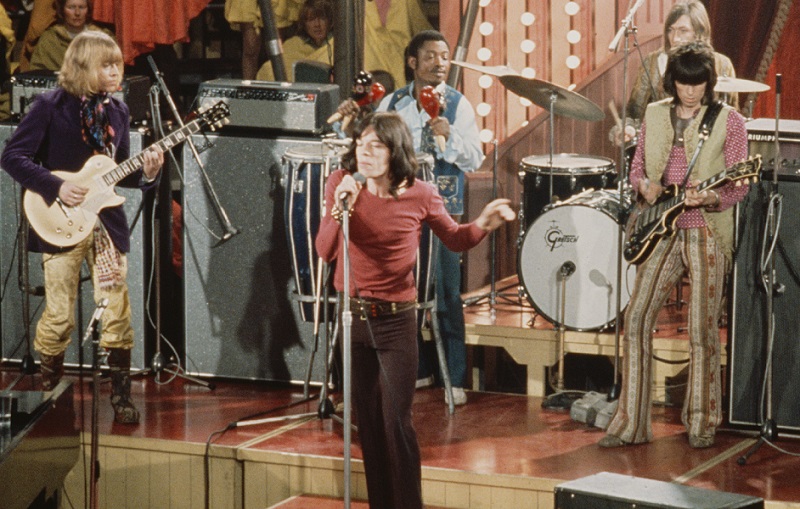Why Did the Rolling Stones Keep ‘Rock and Roll Circus’ Hidden for 28 Years?
When you look at the lineup for Rock and Roll Circus, it’s hard to imagine a better roster. The Who, John Lennon, Eric Clapton, and Taj Mahal in effect served as opening acts for the Rolling Stones, who planned to release the literal rock circus as a film for the BBC.
But that never happened. After camera crews got their last bit of footage on December 12 1968, the Stones decided it wouldn’t go on TV as planned. And it stayed that way until 1996, when it finally screened in theaters and got a home video release. (A deluxe reissue arrived this summer.)
Given the rock royalty in attendance and the timing of the film (it was Brian Jones’s last performance with the Stones), there have been countless theories of why the Stones kept the footage out of sight. And, with the performances now available, several make sense.
Many believe the Stones were upstaged by The Who and other acts.

In December ’68, the Stones were intent on promoting their new album (Beggars Banquet), and a rock ‘n’ roll spectacle seemed like a great idea. However, they hadn’t counted on how long it would take to film all the performers (including circus acts with a live tiger and Jethro Tull).
They also might not have counted on how well the other bands would play. Lennon, working with Clapton on guitar, Keith Richards on bass, and Mitch Mitchell (of Jimi Hendrix Experience fame) on drums, stopped in to deliver a supercharged version of “Yer Blues.”
But The Who blew the roof off of Wembley with a powerhouse rendition of “A Quick One, While He’s Away.”
As the Stones’ performance only circulated in limited circles as a bootleg, The Who’s Rock and Roll Circus set went public in the band’s The Kids Are Alright documentary (1979). That fueled the theory that the Stones kept the footage under wraps because they’d felt upstaged.
Speaking to Mojo later, Pete Townshend certainly didn’t question who played best that night. “When [the Stones] really get moving, there is a kind of white magic that starts to replace the black magic, and everything starts to really fly,” Townshend said.
“That didn’t happen on this occasion; there’s no question about that. They weren’t just usurped by The Who, they were also usurped by Taj Mahal.”
The Stones had trouble with Jones and didn’t love their performance that night.

Whether or not the Stones thought they’d been “usurped,” they clearly didn’t love their performance. Keith Richards recalled the shoot lasting 36 hours, and by the time the Stones took the stage they were tired and intoxicated.
“I remember not remembering everything towards the end,” Keith said. (Townshend described Keith’s complexion as “green” that night.)
Director Michael Lindsay-Hogg recalled retakes and other complications around 3 a.m. “It had been a long day, and they were sapped,” he told Uncut. “They were young and strong and vital, but they were also a bit wobbly – especially Brian, but also Keith.”
But Lindsay-Hogg recalled Jagger pulling the band through in the end. Though he stumbles a bit through the opening of “You Can’t Always Get What You Want,” you see Jagger turn it on full blast as the band starts rocking.
But there was the matter of Brian Jones. Not long after, the Stones would drop the band’s founder from the group. “They’re being so mean to me; I don’t feel part of The Rolling Stones any more,” Jones told Lindsay-Hogg the night before.
Whether or not that had anything to do with Jones’s audio that night, we can’t say. But the bottom line is the Stones thought they could do better and had the luxury of keeping the film in the vault.
These days, Mick and Keith probably see uneven past performances — and embarrassing moments in general — as just part of life for rock stars over a 57-year career.
Also see: Who John Lennon Said Should Replace George Harrison as the Beatles’ Lead Guitarist


